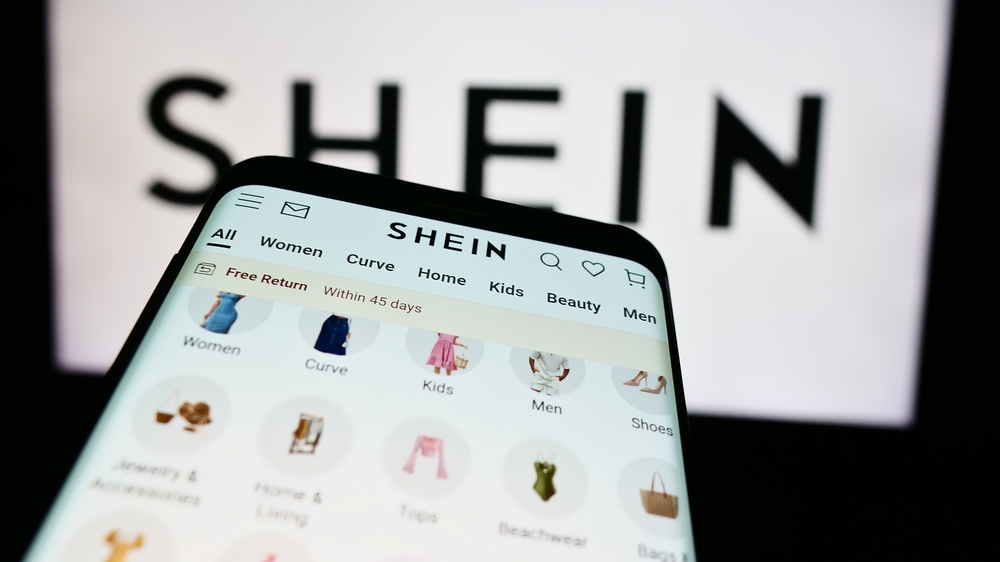

Shein introduces strict controls after a series of heavy fines. Will it affect their bid to go public?
The retail world is full of strict laws and regulations, and in the case of fast fashion, this applies twice as much. One of the leaders in the segment is the Chinese retailer Shein, which rose to prominence thanks to cheap clothing and, above all, aggressive marketing. Its growth, however, has not been without controversy surrounding violations and circumventions of the law, which have resulted in hundreds of millions of euros in fines. The introduction of new oversight bodies comes at a time when Shein is facing political challenges and striving to enter the global stock market.
Strict controls on the horizon
According to Reuters, a so-called Business Integrity Group was established to improve control over compliance with laws and management of relationships. This decision followed fines from several European countries, which in just a few months amounted to nearly 200 million EUR. French regulators have taken the greatest interest in the Chinese retailer. In addition to a 150 million EUR fine for violations of data protection laws, they imposed further sanctions worth tens of millions for misleading advertising, while Italian authorities demanded 1 million EUR over greenwashing. The French are also investigating a complaint regarding non-compliance with OECD guidelines across various regulatory sectors. According to further information from Reuters, Shein is not only forming this oversight group but also expanding its internal audit team, which will focus on markets in the United States, Canada, and Latin America. Their main task will be to ensure compliance with copyright laws and product safety regulations. The European Commission is also taking an interest in product safety, which could potentially lead to additional financial headwinds for Shein.
Hong Kong as a Backup Plan
With proper management, the Chinese retailer could demonstrate integrity before lawmakers, while also taking a potentially beneficial step in the investment world. Shein has been striving to go public for roughly three years. According to the latest reports, covered by The Financial Times (FT) back in July, the company filed for an IPO on the Hong Kong Stock Exchange. Historically, Shein has submitted applications in London and the United States. The attempt to list in the U.S. is no longer on the table, while a small flicker of hope still remains for the UK market. However, the situation is complicated by differing opinions between British and Chinese authorities regarding the disclosure of risks, particularly those involving suppliers. According to sources, the Hong Kong exchange may prove to be more lenient. As Bloomberg reports, in pursuit of its goal, the retailer is considering moving its headquarters from Singapore back to China, where it relocated in 2022 to strengthen its global position. Shein continues to pursue its investment ambitions, and if granted approval, the decision could partly influence the stance of the UK commission. According to FT, London remains Shein’s preferred listing location, which could also help revive the local stock exchange, currently at a 30-year low in IPO activity.
Strong Sales, but Slowing Growth
In the United Kingdom, where Shein operates several pop-up stores, sales reached more than 2 billion GBP (2.3 billion EUR) in 2024, with pre-tax profits of 38.23 million GBP (43.9 million EUR).* Both figures represent double-digit growth. However, the political and regulatory challenges the company faces are weighing on its performance this year. A fact acknowledged by executive chairman Donald Tang. The research firm Coresight Research forecasts a moderate slowdown in U.S. sales for 2025, revising its earlier estimate of a 50% increase to only around 20% growth, while European revenues are expected to surpass those in the United States.[1]
Shein remains best known for its online store and for avoiding customs duties on parcels below a certain value. While the so-called de minimis policy is still in effect across Europe, though it could end within a few years, it was abolished in the United States at the end of August 2025. According to Bloomberg, president Donald Trump justified the decision as a way to “level the playing field for American companies.” The impact was immediate — Shein’s September sales dropped 8% year-on-year. The increase in import tariffs from China and the removal of the de minimis policy led to higher prices for Shein’s products, but on the other hand, it improved competitiveness for other players such as Zara.
Fierce Boycott from Parisians
In addition to its small pop-up stores in the United Kingdom, Shein will open its first permanent brick-and-mortar store in November, as announced in early October. The chosen location — the historic BHV Marais building in Paris — sparked outrage and shock among local retailers who operate in the same place. While Shein describes this move as a “tribute to the fashion capital,” local shop owners see it quite differently. Beyond the controversies over environmental impact and unfair labor practices, Shein’s ultra-low prices have become a disaster for small retailers not only in France but around the world. It’s worth noting that several brands had already ended their business relationships with BHV Marais, as the department store reportedly faced financial difficulties, according to France24. The operator, Société des Grands Magasins (SGM), claimed the issue was temporary, caused by an accounting system failure. However, the new partnership with Shein has further strained relations between SGM, which aims to purchase the building, and its financing bank, which allegedly learned about the store opening through external sources.
* Past performance is not a guarantee of future results.
[1] Forward-looking statements are based on assumptions and current expectations, which may be inaccurate or influenced by the current economic environment, which is subject to change. Such statements are not guarantees of future performance. They involve risks and other uncertainties that are difficult to predict. Actual results may differ materially from those expressed or implied in any forward-looking statements.

